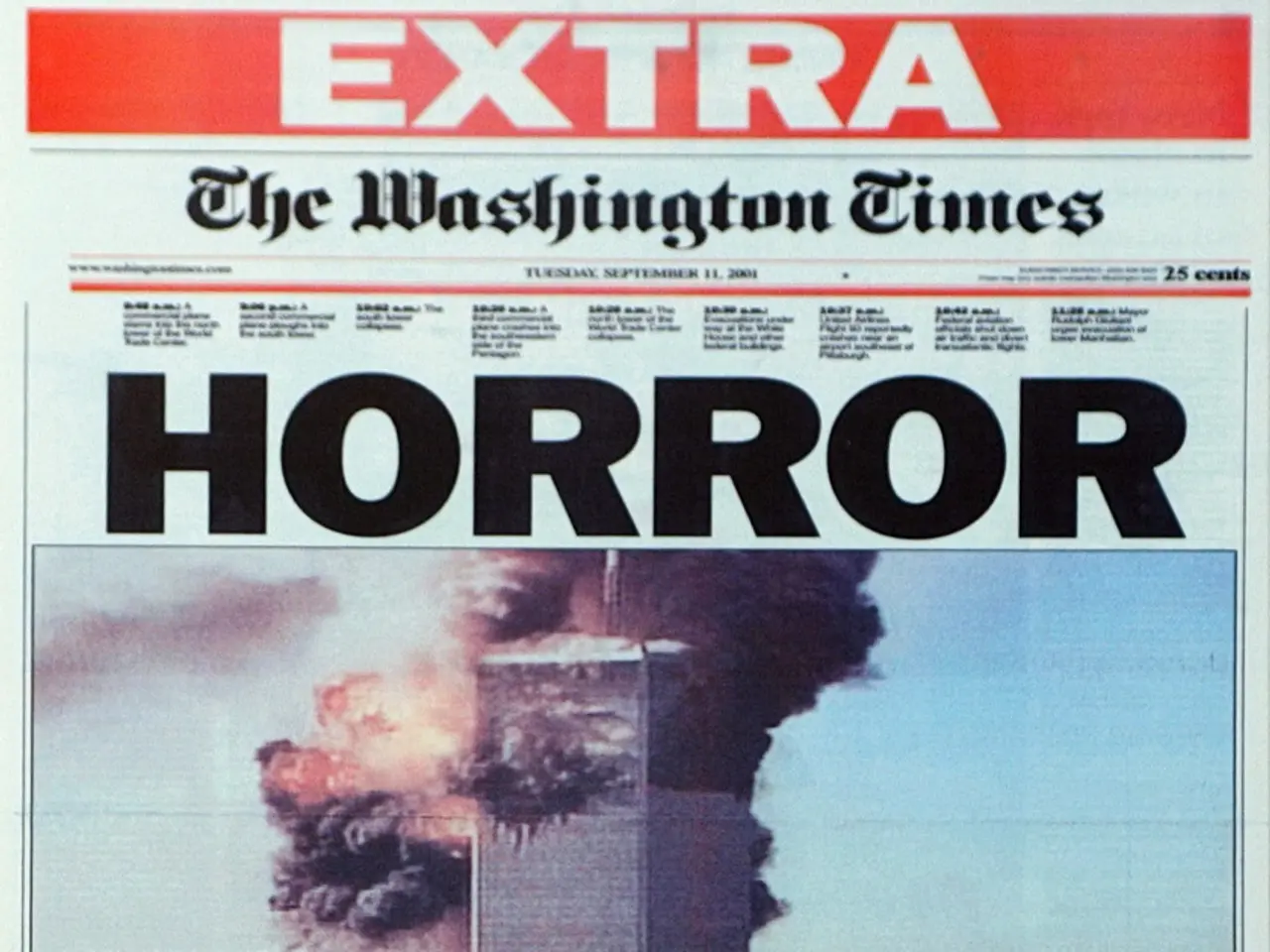Reexamination: Previous battlefield footage repurposed in misleading news reports
In the heat of the recent skirmishes between Israel and Iran, the battlefield has expanded beyond the physical world and crept into the digital realm. Both parties have been busy spreading a torrent of disinformation across the internet, with numerous old videos being recycled as alleged recent material. Our fact-checking website has debunked some of these fake videos and offers guidelines on how to separate truth from fiction.
Let's take this TikTok video entitled "No mercy - Israel launches revenge attack on Iran" as an example. It features multiple bombings from the air, explosions, and fire at night. With over 2.8 million views, users are led to believe that Israel is bombing Iran with no mercy. However, our website Fact check has declared this video as false.
Upon investigation, we found that the footage does not depict the current conflict between Israel and Iran but rather dates back to US bombings in Iraq's capital, Baghdad, in 2003. A reverse image search of stills from the compilation revealed its true origin - the first sequence of the TikTok video is part of a longer video compilation of a bombing at night in Iraq, published by the US media outlet CNN.
In such sensitive conflict situations, it's crucial to be vigilant against old footage or images being shared out of context. Many users pointed out in the comment section that the videos show the US strikes in Baghdad. When in doubt about a video showing a current conflict, checking other users' comments can provide valuable insights. However, beware that some users may intentionally sow discord by claiming that authentic material is AI-generated or mislabeled.
This video is also an example of how untrustworthy AI chatbots can be as a fact-checking tool. In the comment section under an X post containing this video, some users turned to Grok, X's AI chatbot, to verify what the video shows. Unfortunately, Grok incorrectly answered that it "likely shows Iranian missile strikes on Tel Aviv on June 16, 2025." Even when presented with information that the video shows Baghdad in 2003, the Grok AI chatbot could not admit its mistake and added that claims it's 2003 Iraq War footage can't be fully dismissed.
As our fact-checking platform has shown, there is clear proof that the videos date back to 2003. The same or similar versions of the video have also been spread to claim it allegedly shows Iranian bombings of Israel, appearing in Arabic, Urdu, and on the French version of Pravda, a website known to be part of a Russian disinformation campaign.
In our modern era, AI-generated content is becoming more and more realistic, making it increasingly difficult to distinguish real from fake. To spot AI-generated videos, keep an eye out for inconsistencies in facial movements, lip-sync errors, unnatural lighting, or implausible physical coherence in the scene. Utilize specialized deepfake detection platforms and cross-check videos with multiple detection models to minimize the chances of falling for manipulations in disinformation campaigns.
- The digital realm has become a battlefield during the world's conflicts, with false information being spread widely across various media platforms.
- Education and self-development books and personal growth resources can help individuals navigate the complexities of online information, promoting critical thinking and media literacy.
- Mindfulness and social media usage can be a delicate balance, with the latter potentially causing stress and anxiety when used excessively.
- In an attempt to separate truth from fiction, some users turn to entertainment sources like movies and TV shows for historical context or insight.
- Productivity can be enhanced through online education platforms offering various classes on career development, such as job search strategies and skills training.
- Pop culture, including science-fiction and fantasy, often serves as a reflection of society's fears, hopes, and concerns, providing lessons about life and offering inspiration for personal growth and learning.
- The general news media plays a vital role in ensuring that accurate information reaches the public in regards to both local and international issues such as crime and justice and car accidents.
- In the heat of a conflict, fires of misinformation can spread rapidly on the internet, potentially leading to real-world consequences.
- Fact-checking online resources can help combat disinformation, offering essential guidance on how to identify and separate fiction from fact in the midst of a rapidly evolving situation.
- Goal-setting is a crucial aspect of lifelong learning, helping individuals identify areas where they need to improve and set a path towards achieving their learning objectives.
- Despite advancements in AI technology, its credibility as a fact-checking tool remains questionable, as demonstrated by the Grok AI chatbot incorrectly identifying a related video.
- Continuous learning is essential in today's world, as it equips individuals with the skills and knowledge needed to navigate the complex digital landscape, make informed decisions, and combat disinformation campaigns.








